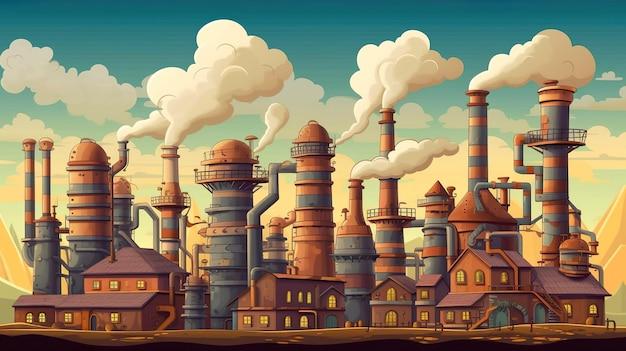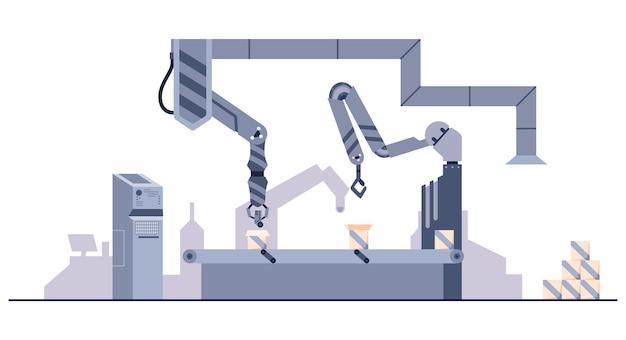Welcome to my blog post on the intriguing topic of how the Industrial Revolution led to the new imperialism. In this post, we will delve into the factors that played a pivotal role in the rise of European powers’ imperial ambitions, particularly in Africa. Through a journey from the technological advancements of the Industrial Revolution to the fervor of the scramble for Africa, we will uncover the intricate connections between these two historical phenomena.
Why were African colonies so profitable to European imperialist powers? How did the Industrial Revolution serve as a catalyst for this global power grab? What were the long-term effects of the scramble for Africa and the partition of the continent? These are some of the questions we will explore as we navigate through the captivating dynamics of the Industrial Revolution and the subsequent era of imperialism.
Join me as we unravel the intertwined narrative of these significant historical events, highlighting their positive and negative consequences, their economic motivations, and the enduring legacy they have left on our world. So, grab a cup of coffee and let’s embark on this enlightening journey together.
So, without further ado, let’s dive into the captivating story of how the Industrial Revolution paved the way for the new imperialism!

How the Industrial Revolution Sparked the Age of New Imperialism
The Growth of Industrial Power
In the late 18th century, a technological wildfire known as the Industrial Revolution began in Great Britain and quickly spread across the globe. This revolution, fueled by advancements in manufacturing, transportation, and machinery, brought radical changes to society and the economy. With steam power, factories churned out goods at an unprecedented rate, transforming production methods and generating immense wealth for industrialized nations.
The Restaurant Analogy: Setting the Stage
To understand how the Industrial Revolution led to the new imperialism, let’s imagine a bustling restaurant. In the early days, this restaurant had limited seating and only a handful of dishes on the menu. But then, a new chef came along, armed with cooking gadgets and an efficient assembly line. Soon, the restaurant became a powerhouse, churning out delicious meals faster and in larger quantities.
Need for Raw Materials
As industrialization spread, fueled by technological advancements, factories demanded more raw materials to keep up with the skyrocketing production. In this restaurant analogy, imagine the chef constantly needing a fresh supply of ingredients to maintain the quality and quantity of the dishes. Similarly, industrial nations hungered for resources like coal, iron, cotton, and rubber to feed their ever-growing appetite for production.
Enter the Age of New Imperialism
The quest for raw materials brought industrialized nations face-to-face with the vast resources available in other parts of the world. And thus, the stage was set for the age of new imperialism. Countries like Great Britain, France, and the United States saw an opportunity to expand their territories and secure these valuable resources, leading to a scramble for colonies.
The “Scramble” Begins
Like diners rushing to grab a seat at the most popular restaurant in town, these industrial powers scrambled to establish colonies in Africa, Asia, and the Americas. They aimed to control the production and distribution of key resources, securing their status as dominant players in the industrial game. This territorial expansion was driven not only by economic motivations but also by competition among nations for global dominance.
The Irony of Free Trade
Ironically, the Industrial Revolution had initially fostered the principles of free trade and open markets. Yet, as industrialized nations sought to protect their interests and maintain control over resources, they often employed protectionist policies and subjugated the economies of their colonies. This contradiction between the rhetoric of free trade and the reality of imperial control led to exploitative relationships between the colonizers and the colonized.
The Industrial Machine Needs Markets
Back to our restaurant analogy: the chef, now supplied with mountains of ingredients, needed hungry diners to devour the delicious creations. Similarly, industrialized nations needed markets to sell their manufactured goods. Colonies provided captive markets for these products, enabling the industries at home to thrive and grow exponentially.
Profiting from the Imperial Machine
While industrialized nations reaped the benefits of imperialism through the exploitation of resources and captive markets, the colonies bore the brunt of the imperial machine. Countries like India and Africa experienced the extraction of resources, forced labor, cultural oppression, and the erosion of their indigenous industries.
The Legacy of New Imperialism
The industrial revolution’s impact on the world cannot be understated. It reshaped the global economic and political landscape, leaving a legacy of inequality, cultural erosion, and social upheaval. While the Industrial Revolution brought remarkable progress and technological marvels, we must acknowledge the profound consequences it had on the world stage.
In summary, the Industrial Revolution birthed the era of new imperialism as industrialized nations sought raw materials, expanded their territories, and secured captive markets. The scramble for colonies that unfolded during this time left a lasting impact on the world, with both positive and negative consequences. As we reflect on this period of history, let us recognize the complexities and ironies that arise when progress and expansion collide.

FAQ – How Did the Industrial Revolution Lead to the New Imperialism
Why were African colonies incredibly profitable for European imperialist powers
European imperialist powers found African colonies to be highly profitable due to several factors:
1. Rich Natural Resources: Africa was abundant in valuable resources such as gold, diamonds, rubber, and ivory, which were in high demand in Europe.
2. Access to New Markets: By establishing colonies in Africa, European powers gained direct access to the continent’s resources and markets, allowing for increased trade and economic growth.
3. Cheap Labor: African colonies provided a source of inexpensive labor, enabling European powers to exploit the resources and generate significant profits.
4. Monopolistic Control: Imperialist powers monopolized trade routes and controlled the production and distribution of goods in their colonies, further boosting their profits.
How did the Industrial Revolution pave the way for the new imperialism
The Industrial Revolution played a crucial role in fueling the new imperialism. Here’s how:
1. Increased Production: The Industrial Revolution led to a surge in European production capacity, resulting in a need for new markets to sell their products.
2. Technological Advancements: The advancements in technology during the Industrial Revolution, such as steam power and improved transportation systems, made it easier for European powers to expand their reach and establish colonies abroad.
3. Competition among European Powers: The Industrial Revolution intensified competition between European powers, with each seeking to secure colonies to gain a competitive edge, access resources, and establish dominance.
4. Economic Motivations: The Industrial Revolution stimulated the desire for raw materials to fuel European industries, leading to a scramble for colonies in resource-rich regions like Africa.
What were the long-term effects of the scramble for Africa
The scramble for Africa had profound long-term effects, including:
1. Artificial Borders: Colonizing powers arbitrarily divided Africa into territories without regard for tribal or ethnic boundaries, contributing to conflicts and tensions that persist to this day.
2. Cultural Disruption: European colonization disrupted African societies, eroding traditional cultures, values, and customs, and replacing them with European systems.
3. Exploitation and Inequality: Colonizing powers exploited African resources and labor, leading to vast wealth disparities and economic underdevelopment across the continent.
4. Lingering Political Instability: The imposition of colonial rule caused political instability, as African nations faced challenges in establishing stable governments post-independence.
What were some of the negative effects of imperialism
Imperialism had detrimental effects on colonized regions, including:
1. Exploitation and Economic Drain: European powers extracted resources from colonies, leading to economic exploitation and draining of wealth from the colonized nations.
2. Loss of Sovereignty: Colonized regions lost their sovereignty and were subjected to foreign rule, eroding political autonomy and self-governance.
3. Cultural Assimilation: Colonial powers imposed their culture and language, leading to the erosion of local traditions and languages.
4. Resistance and Conflict: Imperialism often sparked resistance movements and conflicts, as indigenous populations fought against foreign rule and exploitation.
What were the effects of the partition of Africa
The partition of Africa had significant effects, including:
1. Increased European Control: European powers carved up Africa, resulting in widespread European domination and control over African territories.
2. Resource Exploitation: The partitioning allowed European powers to exploit African resources without competition, leading to economic gains for the colonizers.
3. Political Fragmentation: Arbitrary borders created during the partitioning process led to the fragmentation of African ethnic groups and nations, exacerbating political tensions and conflicts.
4. Legacy of Colonial Borders: The imposed colonial borders continue to shape African nations, often causing challenges in governance and interethnic relations.
Remember, understanding the historical context and the consequences of the Industrial Revolution and the new imperialism helps us grasp the complexities of our world today. These FAQs shed light on key aspects of this transformative period in history while showing how the past continues to impact the present.
Is the 2023 FAQ on the Industrial Revolution and the new imperialism intriguing enough? Absolutely! Prepare to embark on an engaging journey, unraveling the fascinating connections between historical events, economics, and global power dynamics.
